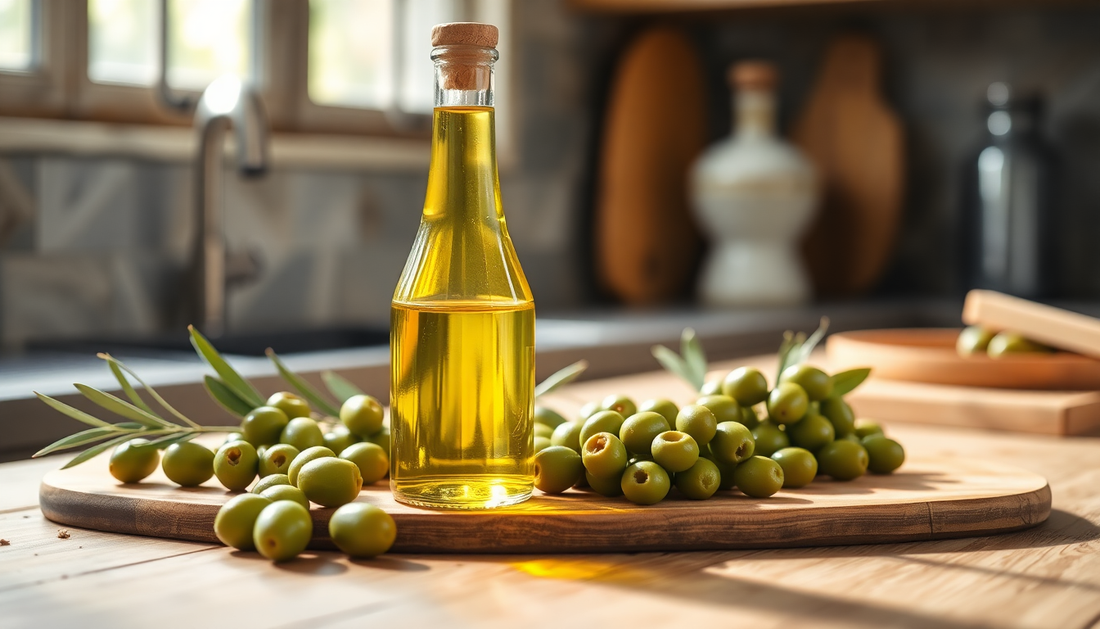
Is organic olive oil really better?
As an olive oil lover, you're probably aware of the many health benefits and diverse flavors this versatile oil offers. But what makes organic olive oil so special? Is it worth investing in this more sustainable alternative? In this article, we delve deeper into the world of organic olive oil and discover whether it's truly a worthwhile choice.
What is organic olive oil?
Organic olive oil comes from olives grown naturally and environmentally friendly. Unlike regular olive oil, no artificial pesticides, herbicides, or fertilizers are used in its production. The olives are grown traditionally, with a focus on the soil and the ecosystem.
To be labeled organic, olive oil companies must meet strict sustainability and environmental management standards. They are regularly audited by independent certification bodies, which monitor compliance with organic guidelines.
Benefits of Organic Olive Oil
Besides the clear environmental benefits, organic olive oil also offers numerous health benefits. Because no chemical pesticides are used, organic olives contain higher levels of antioxidants and healthy fats. This results in an oil with a richer, more complex flavor.
Moreover, organic olive oil often comes from small-scale, artisanal producers who pay close attention to quality. This significantly reduces the risk of adulteration or mixing with cheaper oils compared to industrially produced olive oil.
Difference with regular olive oil
The biggest difference between organic and regular olive oil lies in the production method. While regular olive oil often comes from large-scale, industrialized cultivation, organic olive oil is produced in a more traditional, artisanal way.
Regular olive oil often uses chemical pesticides, artificial fertilizers, and other synthetic additives to maximize yield. Organic olive oil, on the other hand, is grown without these artificial additives, which can reduce yield but improve quality and flavor.
In addition, regular olive oil is often mixed with cheaper vegetable oils, which can compromise its authenticity and quality. Organic olive oil is generally sold purer and unadulterated.
Price difference and value for money
It's no surprise that organic olive oil is generally more expensive than regular olive oil. Small-scale, artisanal production and strict certification requirements drive up costs. Moreover, the yield per hectare is often lower with organic cultivation.
Still, it's important to consider value for money. While organic olive oil is more expensive, you also get higher quality in return. The richer flavor, higher nutritional value, and more sustainable production often make up for the higher price.
Moreover, with organic olive oil, you can be more confident in the authenticity and origin of the product. This is definitely worth considering, especially if you're looking for a high-quality oil for special occasions or cooking.
Tips for buying organic olive oil
Want to switch to organic olive oil? Here are some tips for finding the best quality:
- Look for reliable brands with an organic label, such as Demeter or EKO.
- Try different flavors and origins to find your favorite organic olive oil.
- Be prepared to pay a little more for the added value of organic olive oil.
- It is best to buy small quantities to ensure freshness.
- Store the oil in a dark, cool place to prevent oxidation.
Conclusion: the added value of organic olive oil
Organic olive oil offers clear advantages in terms of sustainability, flavor, and health. While the higher price can be a deterrent, the investment is definitely worth it if you're looking for a high-quality, authentic olive oil.
By choosing organic olive oil, you contribute to more environmentally friendly agriculture and support small-scale, artisanal producers. You'll also enjoy a richer flavor and the assurance that you're buying a pure, unadulterated product.
In short, organic olive oil is a sustainable and healthy choice that will surely surprise your taste buds. Give it a try and discover the difference for yourself!
